People come to 18F from many different backgrounds. We’ve heard from new hires and potential applicants that hearing how people got to 18F is helpful – particularly for our many employees who didn’t come from the tech sector or federal government.
Recently, we asked our team of writers, lawyers, designers, product managers, talent experts, bureaucracy hackers, and developers to tell us what path they took to get to 18F.
Over 100 people from every team (and time zone) responded, and we’re excited to share their responses below. You can also see more about why our team members applied to 18F, and tomorrow you can see what they’ve loved working on so far.
Want to see your name on this list? You can see open positions and how to apply on our join page.
What path did you take to join 18F?
Contents
- Design
- Acquisitions
- Operations
- Outreach
- Product
- Strategy
- Infrastructure
- Engineering
- Business Strategy
Design
18F Design provide content, visual, and interactive design to the rest of the organization.
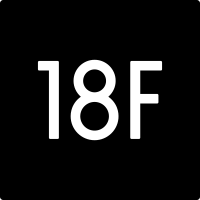
“I came to 18F from the journalism world, and many of the things that drew me to journalism drew me to 18F. I love knowing that I can use my technology skills to help people better perform necessary tasks and make informed decisions.” – Heather Battaglia

“Prior to designing at 18F, I completed a year-long fellowship at Code for America, working with the City of San Antonio to harness the power of technology to help solve community problems. Before that, I practiced design and web development for startups studios, non-profits, and the entertainment and medical industries.” – Maya Benari

“I worked for years as a visual designer creating things like art museum websites and identities for cultural clients. I wanted to design for social impact and deepen my research experience, so I left to complete a master’s degree at MIT, where I helped develop a program that teaches high school students to work with civic data. After graduating, I joined 18F to put my visual and UX design experience to use in public service.” - Erica Deahl
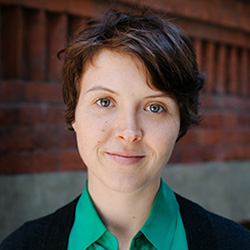
“I was consulting, teaching, and speaking for the past two years. Before that, I worked at Facebook, Lab Zero, and Mule Design in San Francisco. I started my professional writing practice at Apple, where I served as communications lead for five years and helped launch the original iPhone and iPad.” -Nicole Fenton
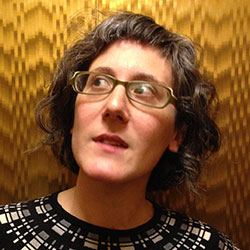
“I’d never considered working for the government before — I was interested in civic design, but I’d always worked for private companies. But I was just coming off of the one-two punch of completing my PhD and having a baby six weeks later. After taking maternity leave, I was ready to go on a new adventure.” - Elizabeth Goodman
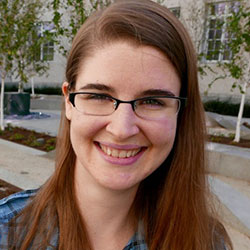
“I previously worked for Cydia, the alternative to the App Store for jailbroken iOS, which supports a community that makes unofficial customizations for iOS. iOS jailbreaking has a complex legal status, and my coworker and I participated in the Digital Millennium Copyright Act’s exemption comment process related to this. Both of us found this engagement with government fascinating and exciting, and we both turned toward more involvement in government — he got more active in local government, and I joined 18F!” - Britta Gustafson
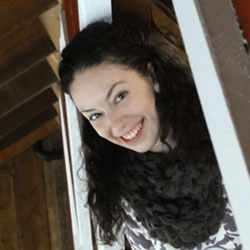
“I studied public policy, but always did tech stuff on the side. I worked for the government after school doing more policy-related stuff, but I realized the the real need was in tech, and through tech and design, public policy goals could be reached.” - Michelle Hertzfeld

“Grew up around the world. Abstract painter. Solo designer working on small, scrappy teams within UNICEF, Columbia University, Berkman Center for Internet & Society. Interaction Design graduate student working on a thesis that made sense of our surveillance culture through personal storytelling. Job applicant to places like PIF, CFPB and Data & Society. (Didn't get any of them. It's ok!) Then, I happened to see an email from Erie Meyer on a listserv called Tech Lady Mafia whose subject line read "Do you love design, user research and making government better?" I replied with my enthusiastic yes! Her gracious introduction to 18F-ers at the time directly led me to applying, interviewing and working here.” - Meghana Khandekar

“My path to 18F was a somewhat circuitous one. After earning my MFA in fiction writing, I spent several years developing online fine-arts coursework. Following that, I joined a startup, where I was in charge of recruitment and educational strategy for a team of thousands of freelance writers. I left that startup to come work for 18F. I’ve always sought roles that draw on my creative writing background, pedagogical experience, and love of plain language, and my work for 18F does just that (and more!). Every day is the best kind of challenge.” - Kate Garklavs
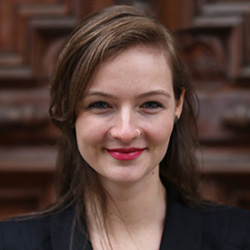
“Worked at a branding agency in Denver, learning the fine details of design and production work >> Broke graduate student in NYC >> Started the design team at a startup social impact consultancy focused on international development, (while in school full-time) >> No sleep, still broke, but working on stuff that mattered >> Extended vacation to recuperate (Brazil/Argentina/Maine) >> Interviewed with 18F >> Freelance designer and design researcher >> Researched experience of high needs individuals in overcrowded Louisville, KY jail >> Played phone tag with GSA Human Resources (difficult because I couldn’t use my cell phone in jail) >> 18F!” - Jennifer Thibault
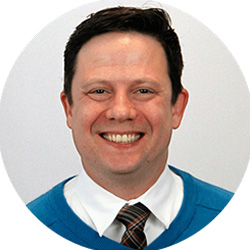
“I joined 18F after serving as a Presidential Innovation Fellow working at the U.S. Department of the Interior.” - Chris Goranson
Acquisitions
The acquisitions team provides innovative services and solutions to support digital service delivery. Their teams have a mix of former contracting officers, developers, and product manager who manage access to the Agile Delivery Services Marketplace, RFP ghostwriting consulting, and the micro-purchase platform.

“My path to 18F involved some serendipity. When I arrived in D.C. a few years ago, I was starting law school and thinking that I would pursue a traditional legal career. But I never stopped thinking like a programmer. Whether I was freelancing for some extra money, writing open source code, or using GitHub Issues to manage my reading assignments, the urge to keep writing software never went away. On a quiet winter afternoon in 2012, I was sitting at my desk for an Federal Communications Commission (FCC) legal internship and noticed something truly amazing: an FCC GitHub Organization. I asked my supervisor if I could meet whoever it was that was behind this. I met with that person, we talked about how I loved government-y things and could write software. He told me that I would be spending the rest of my internship working in his office. That person turned out to be future-fellow-18Fer Gray Brooks. Until that moment, I had never known that there was any demand for the skills possessed by lawyer-coders. It was truly eye-opening, and it set the stage for me to thrive at 18F a couple years later.” – Alan deLevie

“I was a web developer for a small consultancy, and then I went to graduate school for public policy, during which I was an [Office of Science and Technology Policy] intern and was really intrigued about 18F, and decided I would love to work for them after finishing up school” – Laura Gerhardt
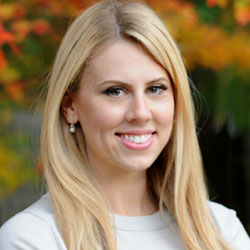
“I worked at the Department of Defense after college, then I went to law school and completed internships at the Executive Office of the President, Department of Homeland Security, Department of Justice, and the U.S. Coast Guard. I always knew I wanted to once again be a 'fed,' so worked in national security consulting and sharpened my project management skills while hoping that the initial 18F delivery offerings would evolve to allow someone like me to join the team. In 2015, the organization began providing consulting and acquisition services to federal partners, and I joined the organization to work on product management and procurement issues.” – Alla Goldman Seiffert
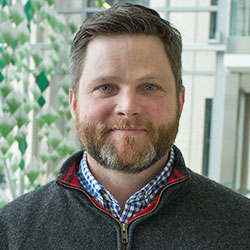
“I was a federal contract specialist/contracting officer for 15 years and was becoming more and more frustrated with some of the obstacles to better technology and better contracts for the federal government. When I saw some of the things 18F (and the U.S. Digital Service, Consumer Financial Protection Bureau, etc.) were doing to disrupt the status quo of federal contracting, I wanted to be part of it. Although I'm not a technologist like most of my peers, I feel like I'm helping this cause by helping our team understand some of the cultural fear, uncertainty, and doubt that might block our clients from embracing modern digital practices.” - Randy Hart
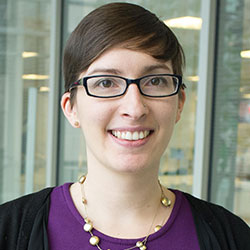
“Lots of time in the non-profit world with a focus on setting up systems for people to do their jobs better — not realizing until fairly recently there were entire professions of the skills I was using (user research, user experience, information architecture, curriculum development). After meeting 18F-ers I realized there were big teams of people who loved helping other people do their work better. <3” - Jessie Posilkin

“My path to 18F started with the Peace Corps. I served in Guinea, West Africa and was evacuated in the midst of the Ebola crisis. Returned Peace Corps Volunteers have one year of Non Competitive Eligibility, which makes the hiring process in the federal government much easier. I met my now-supervisor at a career fair that the Peace Corps Headquarters holds twice a year. Five months after being evacuated, I was starting in the Office of Citizen Services and Innovative Technologies. I had never heard of OCSIT or 18F before that. I have a few family members working in various parts of the government who have always regaled me with stories of the maddening bureaucracy. It was encouraging to see an entire office dedicated to hacking the government and helping them to work better. I have been working 50 percent of my time with 18F since November 2015 and have found many more qualities (transparency, professional development, empowerment, focus on diversity, etc) that are inspiring and are refreshing for the public sector.” – Rebecca Refoy-Sidibe
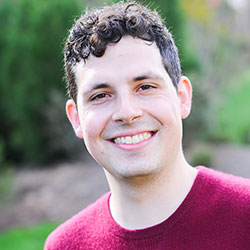
“My path to 18F was through civic hacking -- specifically Code for DC. It helped me demystify technology and showed me some of the possibilities. My favorite thing to work on so far is not a project per se but rather information sharing between team members. There are so many subject-matter experts here, and it's wonderful to be able to teach somebody something new while learning from them, as well.” – Steven Reilly

“I came from an Army IT research lab. Government service is fulfilling in a way that private-sector employment hasn't been for me, and the chance to work somewhere "different" without leaving the government was too tempting to pass up.” – Greg Walker
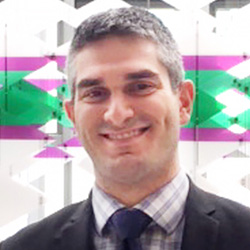
“I left the greatest job in the world (General Counsel to the Council of the District of Columbia) to help bring joy to federal acquisition!” – V. David Zvenyach
Operations
Team Ops handles all activities related to travel, non-travel purchases, legal matters, and equipment requests.

“Peace Corps -> dipped my feet in federal government -> 18F” - Matt Spencer
Outreach
The Outreach team is responsible for promoting the work of digital innovators at 18F and across government. Our work spans a number of media outlets, including the content of 18F’s public-facing website, our blog, our external and internal newsletters, our Twitter feed (@18F), responses to press, and responses to emails to 18f@gsa.gov.
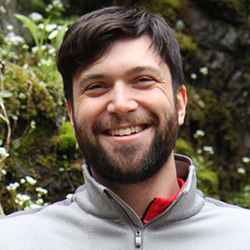
“English teacher abroad in South Korea, then Hungary. Grad school brought me to D.C., consulting at CFPB kept me there and introduced me to the 21st century government. 18F brought me in and let me move to Denver.” - Greg Boone

“Sleep deprived student activist > Issue based campaign organizer > Technology harnesser for social justice > Code For Progress Fellow > Now, a developer building an inclusive environment in government technology.” - Elaine Kamlley
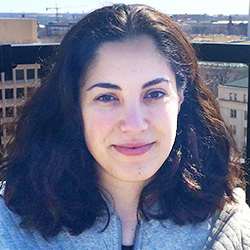
“I spent a decade editing, reporting for, directing, and producing shows in public media, and then became a product person making lots of tools at NPR. During that job, I also learned how to code and started attending civic technology groups to be able to practice my new skills. That’s where I learned about 18F. I really was impressed by the scope of work and the people — and thought it would be a great place to learn and grow. (And it has.)” - Melody Kramer
Product
Each project at 18F has a product lead whose job is to ensure the project is moving forward. A product lead looks at the whole picture and figures out how to make it work, including making sure we’re user-centered and agile, taking care of billing and logistics, and handling other details so that the rest of the team can do its job. We tend to be generalists, often with skills in code or other disciplines as well as product.More information about our Product team is available in the 18F Product Guide.

“In 2012, I heard Todd Park speak, and became a Presidential Innovation Fellow in 2013 at the Smithsonian Institution. I helped with the implementation of the Executive Order on Open Data, and saw how small changes in government can have tremendous impact on our economy and our society.” - Sarah Allen

“I’d been in the private sector my entire career. I truly enjoy software’s ability to deeply affect outcomes. But growing up as a UN diplomat’s son; I had a yearning to contribute to something with more social impact. We had a BBQ at our place one spring and was chatting on that very subject with Raphy; a really good friend of mine from heading out west to snowboard to him officiating our wedding. He had just recently transitioned from being a Presidential Innovation Fellow to 18F and was talking about 18Fs mission and projects. It was the very thing I was looking for: I’d be able to serve and continue to grow my skills in the software industry (at that point I had no exposure to open source). To be honest though, I wasn’t sure of my chances given the calibre of people at 18F. But I didn’t want to regret not trying, so I gave it a shot. And voila...here I am.” - Porta Antiporta
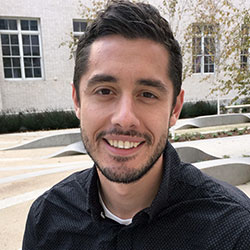
“My background is in consulting, where I primarily worked with large, private-sector clients on a variety of digital initiatives that were similar to the types of projects we do at 18F. However, my favorite project was working with the design firm, IDEO, and Los Angeles County, on designing a new, user-centered voting system that leverages open source technology. The experience showed me how passionate public servants are about their work and their willingness to bring improved digital experiences to their constituents.” - Larry Bafundo

“I was introduced to 18F through our local Code for America brigade, Code For Dayton. The opportunity to work on socially-impactful projects as a day job was too good to pass up.” - Dave Best
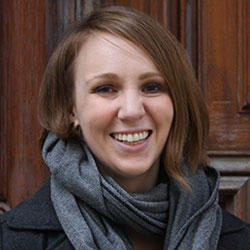
“I came to 18F via the world of theatre and digital marketing for entertainment brands. I joined up because I wanted my work to have a lasting impact for the largest number of people possible.” - Alex Bisker

“I had been on detail from the Federal Communications Commission for two years to work with agencies on APIs and open source. We knew that there was much more that could be done here, so I made the move permanent.” - Gray Brooks
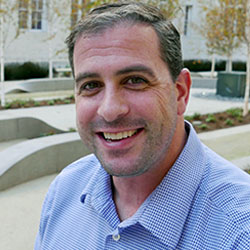
“I was a director of developer services for PlayStation. Had I stayed in my role, the net impact on the world would be that game developers could make games a little faster, cheaper, and easier...that's it. Had I kept marching in the streets for climate action, I would continue to be just one ant among many. It was a sobering thought; I knew I could bring more good to the world. I decided that I wanted my day job to focus on making positive change. I explored options in greentech startups, benefit corporations, and nonprofits. Once I knew about it, I couldn't get 18F out of my head. I applied and eventually started July 12th, 2015.” - Bret Mogilefsky
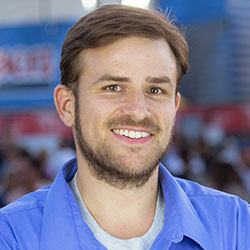
“Journalism nerd,
mobile govie, 18F.
Let's fix big problems.” – Will Sullivan, Haiku writer in Chief
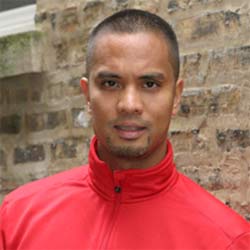
“While working at a startup, I made a new friend that told me I could serve the country by becoming a PIF (Presidential Innovation Fellow). I did just that. After finishing my term as a PIF, I wasn't ready to leave public service. This was a natural way to continue.” - Raphael Villas

“My path to 18F was through the Presidential Innovation Fellow (PIF) program. After serving as a PIF for a year I was able to continue work on one of my projects through 18F thanks to OCSIT's "The Great Pitch".” - Julia Winn
Strategy
We help agencies transform into modern, high-functioning organizations through new management models, culture change, modern practices, empowered talent, data access, technology, and collaboration tools. We transform how agencies understand and execute projects: what to build, how to build, and who will build it.

“I consider my time at 18F to be penance for the many years I spent working in Silicon Valley. I started working on Internet startups almost two decades ago and genuinely bought into the notion that network technology would "change the world." But while that can be true, making a genuinely positive impact is not nearly as easy as Silicon Valley promises. As often as not, I found myself working on projects that had little to no social value, and as time wore on and the industry became more and more nakedly interested in money over people, my heart sunk. Fortunately, I was able to jump ship and join the product team at Code for America, a nonprofit dedicated to improving technology for cities, where I once again felt like I was doing work that made a difference. After several years with them I joined the (amazing!) team at 18F to continue doing this kind of work at the federal level.” – Lane Becker
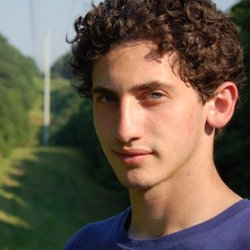
“I was involved in the SOPA/PIPA fight, ended up helping run a few government-themed hackathons where I met Todd Park. Fast forward a few years, and I was consulting with the State of Washington to help them do lean startup, customer development, and design thinking. I was speaking at the Lean Startup Conference, ran into Todd again, and, long story short: He's very persuasive and now I'm here!” – Zac Cohn
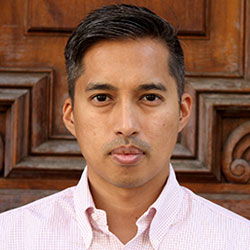
“I came to 18F after working on a project with the NCTC (National Counterterrorism Center) and saw the need to for more creative technologist in gov.” - Romke De Haan

“A non-traditional life intertwined with tech entrepreneurship, online startups, interactive design, and public service. Served as youth pastor, founded a brand design firm, scaled a tech training organization, worked on Capitol Hill and was a Resident in the Venture Incubation Program at the Harvard Innovation Lab working on applying fantasy football to the legislative process. After graduating from my master's program at Harvard's Kennedy School, found my way to a place where all the pieces of my life come together.” – Philip Harding
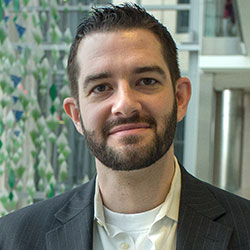
“My path to 18F was building experience in industry, then learning the governmental aspects like policy, and finally having an opportunity to bring that experience inside.” – Jay Huie
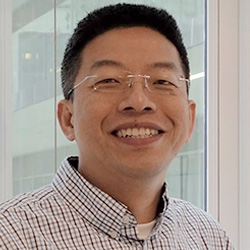
“I was mainly in the private sector when I found myself working as a contractor for a short stint. I was disappointed at how inefficiently and ineffectively the project I was working on was being managed. I helped to make this one project more agile and discovered along the way that 18F was trying to do this on a massive scale. Right then, I knew what I wanted to do.” - Mike Hsu
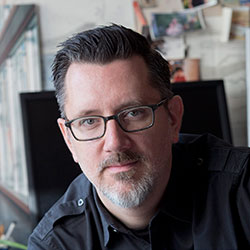
“I first briefly joined government because of a tweet I wrote. Some folks at The White House saw it and asked me to come work on what became the first version of HealthCare.gov in 2010. Two years later, I again worked on HealthCare.gov in its second iteration and its infamous launch. That experience, in which quite a bit of good work was overshadowed by the inexcusably bad launch, has been deeply informative. I believe strongly that government can serve the public effectively and want to be part of the movement to makes it so.” - Ed Mullen

“I got involved with advocacy and community organizing with CalPIRG while studying graphic design at [the University of Southern California. After several years as a freelance designer post-college, I found a place to marry those two interests in Code for America, where I spent a year partnering with the City of New Orleans to build technology tools to make it easier for residents to understand what's happening with blighted properties in their neighborhoods. Code for America was where I discovered that my natural tendency to ask a million questions and doggedly seek the simplest path had a name, and was where I cultivated my UX design, research, and product management skillsets. After our fellowship, my CfA teammates and I formed a company around our fellowship project (then "BlightStatus," now "Civic Insight"), where I served as Founder & Chief Product Officer until our company was acquired last fall. After several years focused on technology for government at the local level, 18F was a natural next step, and I'm thrilled to be here.” –- Alex Pandel
Infrastructure
The infrastructure team helps 18F navigate the “federal compliance architecture.” This work applies to much more than technology: it applies to our entire operation, including how we work inside the law, how we secure our systems, how we collect data from the public, and how we spend money.

“By 2013, I had several ideas to reform government processes around system deployments, security, and privacy that needed longer term support than what at the time the Presidential Innovation Fellowship program could offer. Thankfully, Jennifer Pahlka, a U.S. Deputy CTO at the time, connected me with the 18F startup team at the GSA, and the rest is history.” - Noah Kunin
Engineering
18F Engineering is responsible for delivering high quality, robust, open source software. We also evangelize best practices relating to software testing, scalability, security, and agile development.
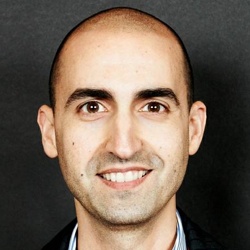
“My path to 18F can be traced back to 2012 when I was still at AOL. I was looking to transition from QA to Dev, and thought that a good stepping stone would be to lead the automated testing effort on the mobile team, a role I pursued and obtained. A few months later, as part of the team that shipped TechCrunch for iPad, I was invited to attend the last day of TechCrunch Disrupt NYC. Todd Park and Steven VanRoekel happened to be announcing the PIF program that day, and their passionate and spirited talk on innovation in the government blew me away. I started following Todd on Twitter, and that same day, he mentioned Code for America. Shortly thereafter, I found out about the open application for their Fellowship program. I applied because I wanted to give back to the community and make a long-lasting impact while acquiring new skills and being surrounded by smart and talented people who share the same vision and passion for improving society. My CfA teammates and I built Ohana API, an open source platform that makes it easy for community and human services to be discoverable. We ended up being one of the seven winners of the <a href="http://www.knightfoundation.org/grants/201447979>Knight News Challenge for Health</a> in 2014, and got a grant to improve the project for another year. In late 2014, I attended a Hack Night for Open Opportunities, where I paired with Sarah Allen to implement a feature, and later submitted these two pull requests. Sarah emailed me a few days later asking if I would be interested in working at 18F.” – Moncef Belyamani
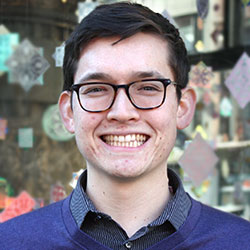
“I went to a small liberal arts college of less than 400 people, where I concentrated on the humanities. Most of my classmates ended up going into the public sector through higher education. Around my senior year, I started to turn my interest in design into a desire to learn how to program. I moved to China for a year, where I ended up working for a startup as a web developer and began learning about civic tech. After moving back to the US, I ended up in New York and discovered the local Code For America brigade. I always thought I wanted to apply my programming ability to problems that served the public. I ended up contracted for many companies as a programmer and working at Conde Nast for two and a half years. In early-2015, the Presidential Innovation Fellows and Digital Services caught my eye and I started paying attention to relevant announcements. After seeing an announcement about the Digital Services, I submitted an application and started my route into 18F from there.” - Lenny Bogdonoff
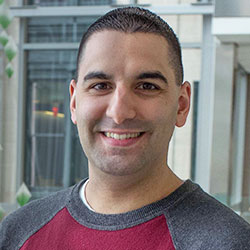
“My path to 18F was fairly circuitous over the last 10 years; I started at a small consulting company after finishing grad school (which I also taught a course at!), then found my way to PBS (Public Broadcasting Service!), which was my first full introduction to Python, Django, and open source. From there I worked at National Journal (which included helping support the Almanac of American Politics), the Library of Congress (as a contractor), a small startup focused on making healthcare more personal for employees at other companies, and then Bloomberg BNA most recently. Jackie Kazil (a former colleague of mine when we were at the Library of Congress together) was my initial link to 18F.” - Carlo Costino
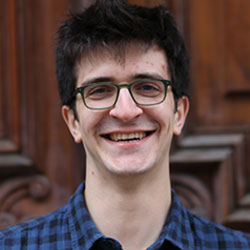
“A former coworker took me to the Personal Democracy Forum conference. Erie Meyer from USDS was on a panel, and she asked a room full of open government advocates "who here has actually worked in public sector?" Only a few raised their hands. She then challenged the group to actually get jobs in government and create the transparency they wanted to see. Working in government was not something I had ever considered, so I decided to take her challenge. I heard about 18F shortly after that, and after a couple of conversations, knew it was where I wanted to be.” - Aidan Feldman
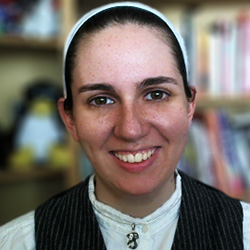
“I started learning to code when I was working for a member of congress as a web manager. Using analytics to build the best site I could for constituents got me really excited about using technology to make things work better for the American people. After that, I spent a few years working for a civic engagement startup before former 18F’er Jackie Kazil sold me on 18F.” - Annalee Flower Horne

“I joined 18F after contacting the USDS about how to help after hearing President Obama speak. Prior to 18F I worked for General Electric and Luxottica leading IT initiatives for private multinational corporations.” – Steven Harms

“First, the people: 18F (and the sibling organizations like USDS, PIF, etc) have such an amazing staff including a bunch of people I've worked with or want to work with. It's a pretty spectacular team. And, it's by far the most diverse team I've ever worked on, which aligns very closely to my personal politics. It's like a breath of fresh air, looking around the office and not just seeing a bunch of young white dudes. Second: Open Source: open source -- and in general doing work in the open -- is super-important to me, but has been something I've had a really hard time finding time for at other jobs. 18F's "we work in the open" default means my work should be a lot more aligned with my desire to work on open source at work.” – Jacob Kaplan-Moss
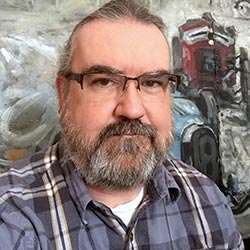
“My family has a history of serving this country in any way it can. Both of my grandfathers were veterans of the Army, serving in the WWII Pacific theater, and Korea. My brother, brother-in-law, and three cousins have all served their country in the Marine Corps before and after the turmoil of 9/11. I knew I was not the military kind, so I took a different approach to serving, working as a consultant to the government to build better, and more re-usable software. The software market in government is saturated with vendors, both good and bad, and so exposure to being able to drive innovation is limited. I wanted to have a greater impact on how the government builds software, and found that 18F has that same mission.” – Adam Kendall

“After a few public-good oriented startups, I was fortunate enough to be selected for CFPB's Technology and Innovation fellowship. 18F takes the types of best practices central at CFPB and applys them to the whole of the federal government.” - CM Lubinski

“In my work at the Sunlight Foundation, I developed real software infrastructure for open government, did public outreach, and collaborated with the government on policy change. That turned out to be excellent preparation for 18F.” - Eric Mill

“After years of working in the advertising industry, I wanted a change that would make a real impact in the world using software. Instead of helping people click-through to more content or change an ad-specific communication preference, I want to change the way people have to interact with government services whether it's tools used by federal agencies or by the American people. I am a self-taught software developer that found my place in web development by coming in through the window, specifically the browser window. Coming from a traditional graphic design background, CSS and systems design were two things that felt as natural as color theory and typography. As I learned more about the history of and fundamentals of programming, I made my transition to full-stack web development.” – Roger Ruiz
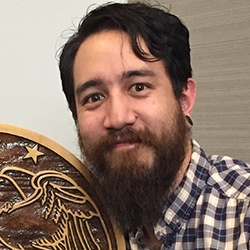
“On the technical side, I got my start in video game QA before making the jump to the tech world. When the startup I was at was acquired by Google, my role shifted to something both more technical and philosophical. My experience working on a large scale knowledge representation system has helped me in thinking about how we can make government information and data more usable and accessible.” – Micah Saul

“I’ve been programming and running projects with a data emphasis for almost 20 years. In my most recent role as the Director of Tech for National Priorities Project, a nonprofit federal budget watchdog, I learned how critical it is for Americans to understand how their tax dollars are being spent. The opportunity to help improve that data is ultimately what led me to 18F.” - Becky Sweger
Business Strategy
Intake is the process by which 18F listens to potential partners, discusses possible solutions to their challenges, and determines appropriate next steps. In short, it’s how we do business development for inbound inquiries.

“I've been with GSA for 9+ years. I first encountered the work of 18F as a senior advisor to the Administrator, then began working closely with 18F when I was deputy CCO with the customer team. Finally, I was working more closely day-to-day with 18F as Chief of Staff for OCSIT/18F. With 18F, I was always impressed with how everyone was here for the right reason (they wanted to push government forward) and there is very little ego/hierarchy -- people just want to get good work done and are pretty flexible with the 'how.'” – Vicki McFadden

“I was working as a healthcare IT implementer in Wisconsin when I read the Time article "Obama's Trauma's Team" on the healthcare.gov rescue and thought 'I have the experience to help prevent or fix situations like that.' Then in August 2014, I saw 18F mentioned in press coverage of the launch of the United States Digital Service and sent a cold email to 18F because it had a website, offering to help out from Wisconsin as needed. Seven months later, I started!" - Will Slack
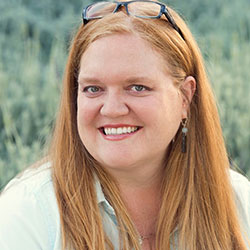
“In 2012, former U.S. CTO Todd Park tweeted he was "looking for a few good women and men to serve their country" as part of a new program called the White House Presidential Innovation Fellows (PIFs). As a member of the first class of fellows, my team worked on reimagining the relationship between the government and the people from a technology perspective. I went back to TurboTax after the fellowship ended, and felt like something was missing. Cut to December 2014, as I watched Todd and the gang talk about the relatively-new government startups called U.S. Digital Services (USDS) and 18F onstage at the Lean Startup Conference in San Francisco. I couldn't stop grinning because: 1. They were remarkable up there; and 2. I realized we PIFs had been human MVPs for this blueprint of bringing outside technologists into federal government. And our little lean experiment was working like gangbusters. One month later I gave notice at work, and joined 18F!” — Kara DeFrias

